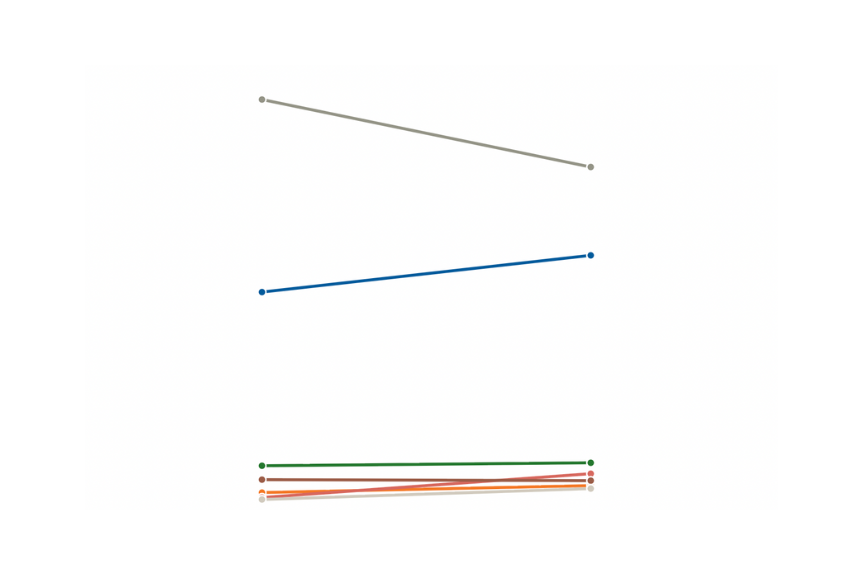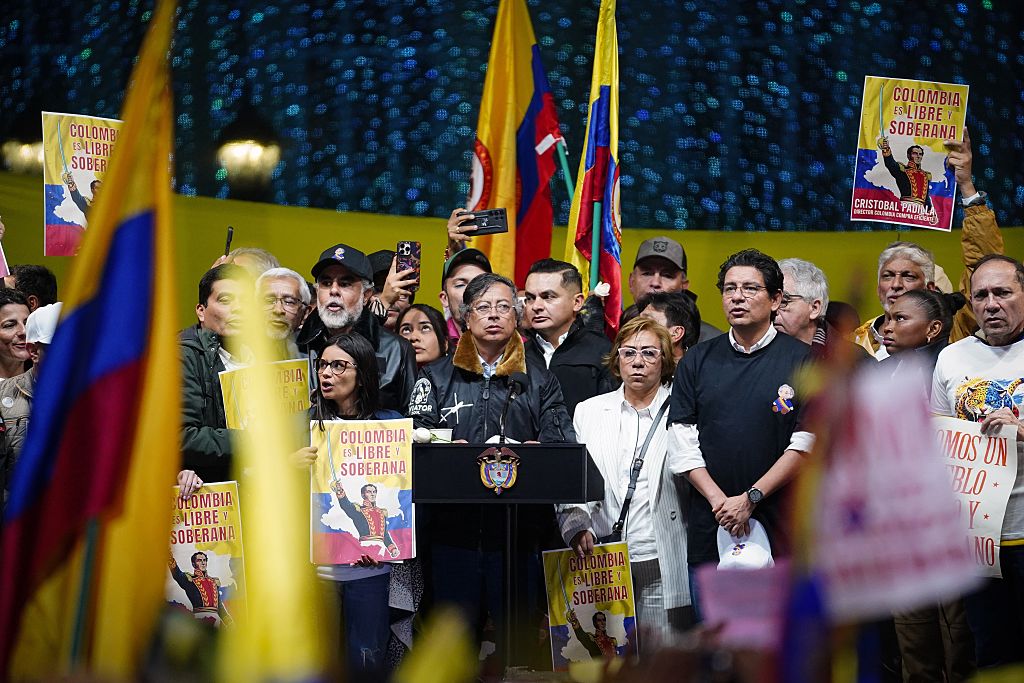Interview: Carlos Zeferino Torreblanca, Governor of the State of Guerrero, on what's happening in Guerrero today
Interview: Carlos Zeferino Torreblanca, Governor of the State of Guerrero, on what's happening in Guerrero today
Carlos Zeferino Torreblanca, governer of Guerrero, Mexico, spoke with AS/COA in an exclusive interview. Guerrero is one of the poorest states in the country, but Governor Torreblanca remains optimistic about tourism, infrustructure development, and the fight against rural poverty.
Carlos Zeferino Torreblanca, Governor of Guerrero, Mexico, spoke with AS/COA’s Madeleine Johnson following a private meeting with our members in Miami. Although Guerrero is one of the poorest states in the country, Governor Torreblanca has high hopes for the tourism sector, the development of the state’s infrastructure and the fight against rural poverty. “We want to teach people how to fish—not just give them fish. That’s my government’s philosophy,” says Torreblanca.
AS/COA: Thank you very much for being here with us today, governor. The tourism sector in Mexico has been affected by both the economic crisis and the outbreak of H1N1. What are the state government’s plans for regenerating growth and tourism in Guerrero?
Torreblanca: We’re striving to take the necessary measures in a timely fashion to deal with these issues and make sure the problems don’t spread any further. The effects of this health crisis were resolved immediately with the help of a campaign dedicated to combating this problem.
Now we’re functioning normally and the latest numbers show positive signs for hotel occupancy rates in Acapulco, Zihuatanejo and Ixtapa. We must continue working together with those in the tourist industry in order to truly understand under what conditions we are working.
Occupancy rates are very high today. I don’t feel that there will be any further impact. We are in a period in which the disease does generate, propagate, or spread more in the state of Guerrero. We have recently established a campaign to show the world that in Guerrero we are ready, willing, and waiting to welcome you.
AS/COA: Besides tourism, could you name the three sectors that currently present the greatest investment potential?
Torreblanca: Tourism, tourism, and tourism.
Tourism is the main one. We also play an important role in the mining industry. Canada has invested in two regions of the state, which has one of the principal mining industries in the country, mainly in the extraction of zinc, gold and silver.
Another principal theme has much to do with maritime development. We are trying to promote this industry as well, but tourism remains our number one priority.
AS/COA: What steps has the state of Guerrero taken to make investing easier?
Torreblanca: Like any other government, we facilitate investment through our secretary of economic development, and rather than providing the same thing as everyone else, we are trying to improve our infrastructure development. Guerrero is a state with a very complex geography, and investments won’t happen unless the infrastructure is in place.
Another aspect has to do with the tax incentives we’re receiving from the federal government as well as a strategy that guarantees harmonious, sustainable growth to allow for balanced social and economic development.
AS/COA: Let’s talk about security. What measures has the state taken to guarantee security for investment?
Torreblanca: In addition to personal security, we offer legal security. The modernizing of the administration has made it possible for us to guarantee viable legal safeguards for all investors. We are trying to improve our regulatory bodies and in doing so have become much more attentive, thanks to modernization.
What’s most important is working together with the federal government. Security cannot be limited to what the law establishes—it must go way beyond that. We are not running away from our responsibility; the state of Guerrero is working closely with the federal government on permanent joint operations that, above all, will allow us to prevent crime.
AS/COA: President Obama’s administration has assumed “co-responsibility” for the escalating violence in Mexico and the war on drugs. We know that this responsibility ultimately falls on the shoulders of the federal government but, in your opinion, where would you like to see greater effort on the part of the United States?
Torreblanca: Principally in terms of the sale of weapons—weapons coming in from the U.S. and being used to commit serious crimes in Mexico, and in Guerrero in particular. This would be one of the best indicators of the cooperation.
Independently of the programs that they have already implemented, and that are showing results, the work involves collaboration and cooperation between the two countries. My personal opinion is that the problem has a lot to do with the issue of weapon sales. By diminishing arms trafficking to Mexico, I’m sure we’re fighting all forms of crime in an intelligent way.
AS/COA: Could you say a bit about your “Guerrero Without Hunger” program and the fight against rural poverty?
Torreblanca: Yes. I don’t believe that the problem of poverty can be solved by giving things to people—that’s existential politics. I believe it can only be solved by generating wealth, and wealth cannot be generated if we do not create the conditions for it to do so. Those of us fighting to create policies to assist the poor through direct subsidies are trying to utilize the talents and capacities of the poorest to produce this wealth.
For example, with the help of a thousand young farmers, we are teaching people how to utilize government aid to buy laying hens. How will that help them? Because the hens, which they have well-fed in their homes, with economical feed and with proper guidance in regards to health standards, produce eggs. These eggs can be then incorporated into their diets, and the surplus sold for profit. We have created community shops so that people don’t have to buy high-priced goods, because those buying the most expensive goods are always the poorest and live farthest away from shopping centers—where they get taken advantage of.
This is an example. We did the same thing with pigs, lambs, seeds, and programs that help recoup wages. This is all part of the program we call “Guerrero Without Hunger.” We want to teach people how to fish—not just give them fish. That’s my government’s philosophy.”
AS/COA: The last but certainly not least important question. Let’s talk about politics. You recently spoke about the importance of a united left in meeting the challenges the country is currently facing. What can you tell us about the recent elections in Mexico, and the future of the PRD?
Torreblanca: To begin, the left in Mexico needs to reestablish itself and reorient its strategy if it wants to be a valid force in the country. The left has to continue adapting to reality—not with dogmatic principles or theory—but with the reality that the left has to cope with today, a reality that differs totally from the reality when it began, or for what it struggled for so long ago. This left needs to move from discussions to proposals; it has to show in the exercise of the government that it has the capacity to do that. This is the left that I feel we should encourage.
Before governing, the left sold hope, and that’s why the people voted for us. But today the people have realized that, like so the others, we have failed. The greatest proof of this failure is in the policies of all the parties, not only mine, is the extremely low level of civic participation. The people are admonishing us, and now that their vote counts and matters, people aren’t voting. So I believe that we must reform and reclaim politics as an instrument of society, not simply as an instrument of politicians. Most importantly, we must convince the many young people who don’t believe in politics. It’s not an easy job; it takes concerted, permanent, transparent and clear action to change our mentality that we now have this privilege and that our votes count and matter.








